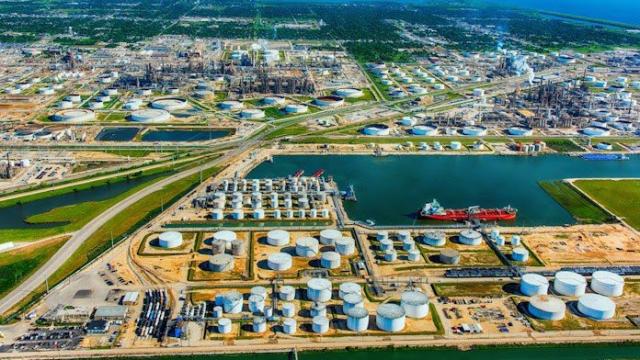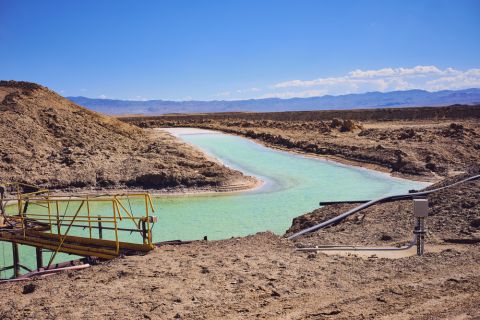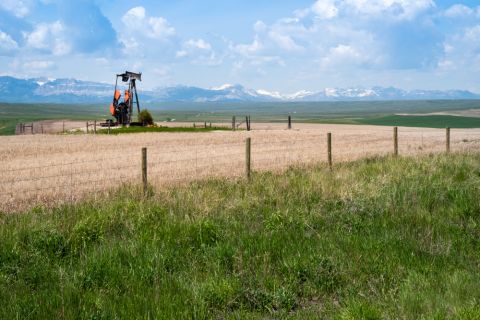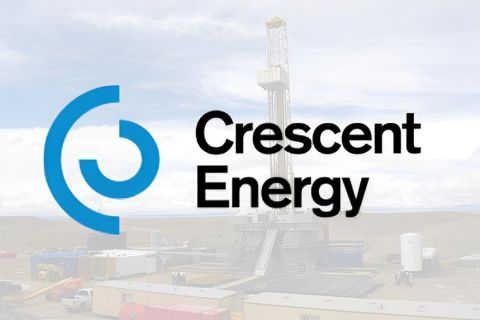
Their project, which targets a 2026 startup, would be the third carbon-capture and sequestration venture proposed for the Texas Gulf Coast. (Source: BP Plc)
Oil major BP Plc and industrial gas supplier Linde Plc. on May 17 announced plans to advance a major carbon capture and storage (CCS) project in Texas that will enable low carbon hydrogen production at Linde’s existing facilities. The development will also support the storage of CO2 captured from other industrial facilities—paving the way for large-scale decarbonization of the Texas Gulf Coast industrial corridor.
Oil, gas and chemical firms have embraced carbon-capture and sequestration, or collecting and sinking greenhouse gas deep underground, to address investor demands to clean up operations and to offset pollution that contributes to global warming.
Upon completion, the project will capture and store CO2 from Linde’s hydrogen production facilities in the greater Houston area—and potentially from its other Texas facilities—to produce low carbon hydrogen for the region. The low carbon hydrogen will be sold to customers along Linde’s hydrogen pipeline network under long-term contracts to enable production of low carbon chemicals and fuels.
Their project, which targets a 2026 startup, would be the third carbon-capture and sequestration (CCS) venture proposed for the Texas Gulf Coast. It aims to stem atmospheric releases of greenhouse gases from the region's industrial sector.
Exxon Mobil has proposed an offshore facility to annually collect up to 100 million metric tons of CO2. Talos Energy and Chevron also are joined in a venture that could buy about 250 million tonnes of CO2 per year offshore.
The BP-Linde venture aims to start storing CO2 from Linde's hydrogen gas plants and seek additional customers for an up to 15 million tonne sequestration facility. BP will develop and permit the venture's subterranean sites and Linde will provide gas compression technology to the venture.
The project "can help decarbonize hard-to-abate industries for the greatest potential impact on emissions while protecting jobs," BP America President Dave Lawler said in a statement.
As part of the project, BP will appraise, develop and permit the geological storage sites for permanent sequestration of the CO2. BP’s trading & shipping business aims to bring custom low carbon solutions to the project, including renewable power and certified natural gas, along with commodity trading and price risk management expertise.
Recommended Reading
Kimmeridge Fast Forwards on SilverBow with Takeover Bid
2024-03-13 - Investment firm Kimmeridge Energy Management, which first asked for additional SilverBow Resources board seats, has followed up with a buyout offer. A deal would make a nearly 1 Bcfe/d Eagle Ford pureplay.
M4E Lithium Closes Funding for Brazilian Lithium Exploration
2024-03-15 - M4E’s financing package includes an equity investment, a royalty purchase and an option for a strategic offtake agreement.
Laredo Oil Subsidiary, Erehwon Enter Into Drilling Agreement with Texakoma
2024-03-14 - The agreement with Lustre Oil and Erehwon Oil & Gas would allow Texakoma to participate in the development of 7,375 net acres of mineral rights in Valley County, Montana.
California Resources Corp. Nominates Christian Kendall to Board of Directors
2024-03-21 - California Resources Corp. has nominated Christian Kendall, former president and CEO of Denbury, to serve on its board.
Uinta Basin: 50% More Oil for Twice the Proppant
2024-03-06 - The higher-intensity completions are costing an average of 35% fewer dollars spent per barrel of oil equivalent of output, Crescent Energy told investors and analysts on March 5.





